![]()
» Iranian Government Confesses its Weakness
This editorial addresses contradictory words of Iran’s Vice President Mohammad Bagher Nobakht regarding the government’s incapability in dealing with corruption.
The editorialist starts by saying that following the unrests in Mashhad which were triggered by the bankruptcy of financial institutions, the government announced it had paid the 11-thousand-billion-toman debt of those financial institutions from Bayt al-Mal (the state’s treasury).
While Iran is severely suffering from lack of capital, its government has paid such amount of money on behalf of some individuals whose names Nobakht refused to reveal. Instead, he asked media to find them out, fearfully adding, “each of them was related to an institution or a branch.” Yet he immediately contradicted his own words by saying he did not mean governmental institutions or those of the establishment.
The editorialist holds that Nobakht’s contradictory words are a testament to the government’s weakness. According to Vice President, it was due to some individuals’ endorsement which those financial institutions could defraud people. The names of those individuals should be published by the very government, which paid 11 thousand billion tomans out of people’s treasury, not by the media. How come Iran’s Central Bank, intelligence ministry, and economy ministry do not know the names of these debtors? How come the principlist media have remained suspiciously silent about the identity of those institutions’ owners?
At the end, the editorialist infers that such individuals get away scot-free as the government does not have the guts to announce their names.
An Editorial in Ghanoon daily on February 21, 2018
» Iran’s Banking System Crisis
This editorial deals with financial crises of banks in Iran.
According to the latest statistics of Iran’s Central Bank, the net debt of banking system to the private sector and people amounted to 500 thousand billion tomans in December. This amount equals 35% of the country’s liquidity. The private banks’ share from the net debt of banking system to people and private sector is 4 thousand trillion rials.
The editorialist then compares the current net debt of banking system to that of four years ago to the private sector which was 690 trillion rials – 14% of the country’s liquidity. In the past four years, while Iran’s liquidity has risen three-fold and its economic income has had 50% increase, the net debt of banking system has risen seven-fold.
The editorialist ends his piece with two major questions. The first one is: How can Iran’s banking system clear its debt of 500 thousand billion Tomans to people as well as the private sector? The second question is: Given Iran’s economy, how can banks pay the annual profit of 200 thousand billion Tomans for their customers’ deposits?
An Editorial in Tejarat Online on February 20, 2018
» Conservative Reformism
The editorial of Jahan Sanat addresses the issue of changes in the discourse of political factions in Iran, particularly that of reformists, after 2009 events.
According to the editorial, after the 2009 events in which people took to streets in protest to result of the election and the country reached a political deadlock, there were changes in the discourse of political sphere in Iran. One noteworthy change was that “nationalism” became significant, and the other was the growth of political conservatism.
The editorial then goes on to say that the second change was more serious: reformists became too much conservative. The main core of this position is: the negation of the idea of revolution and the concept of “hardliners”. In past years, reformists have talked about hardliners more than anything else. But now one can witness a shift in reformists’ jargons, focusing more on denial of monarchists and members of MEK than hardliners.
The editorial adds: reformists do not tolerate any protests against the status quo while calling the critics of the existing situation as “enemies of Iran”. They consider small changes in Rouhani’s government as “big achievements”. The first logical result of this approach was a loss of, or reduction in, their social acceptability.
The editorial concludes: the reformists are now facing the question of legitimacy and can hardly create another social mobilization in the upcoming election.
An Editorial in Jahan Sanat on February 19, 2018
» Will Rate of Interests in Banks Increase?
The editorial of Shorou newspaper deals with this question: will Iranian government be able to deal with the sudden rise in prices in the currency market by increasing rate of interests in banks?
According to the editorial, selling 20% of government bonds announced by the government is a positive sign for Iranian banks to raise the rate of interests, thus attracting more customers to deposit their money in banks. It seems that the government and the Central Bank have both agreed for the interest rate to go up, which doesn’t seem right. The right thing to do is to move towards economic freedom and transparency in the field of economy.
The editorial continues: the reality is the price of foreign currency has grown with considerable speed for different reasons. Of course, the Central Bank and the government do not offer any reasons in this regard, just saying that they have enough foreign currency, and this increase is due to false -and not economic or scientific – reasons.
The editorial urges that the current situation in the currency market must be explained: what has happened that people are so much worried? Are people worried about sanctions? Are they worried about the U.S. threats? Is it because people are worried about recent unrests in the country?
Then the editorial offers other reasons for this situation in the currency market. The government has suppressed the rate of foreign currency for a long time, thus not allowing a gradual growth to happen in proportion with the inflation rate. The other issue is that the government massively increases the liquidity. The third reason is lack of credibility of financial and banking system, which means some financial institutions are bankrupted and cannot pay people’s money. And people are accordingly trying to withdraw their money from banks.
In conclusion, the editorial proposes that the government should go towards transparency in the economy and economic freedom, in which there are no rent-seeking or special concessions.
An Editorial in Shorou on February 18, 2018
![]()
♦ Lawmaker: Iran not benefiting from construction in Iraq
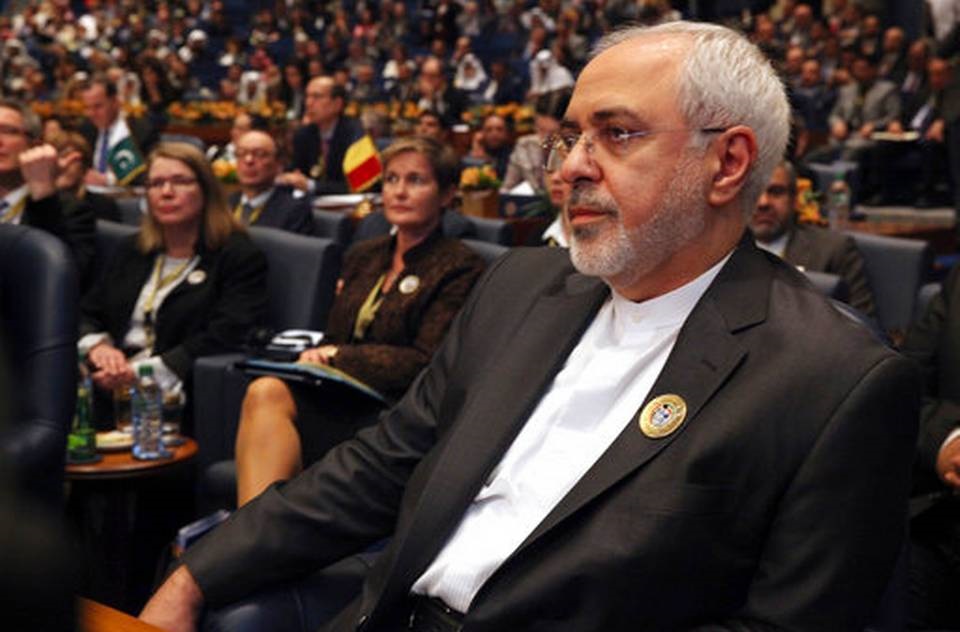
Member of National Security Commission in Parliament said, “due to weak economic diplomacy, we haven’t been able to enjoy benefits of construction in Iraq.” Mojtaba Zolnoor added the government hasn’t created the necessary mechanism for the private sector to enter other countries, urging that the necessary infrastructure must be created for the presence of the private sector in Iraq.
Young Journalists Club
♦ Rouhani: We will not tolerate insults against police

Pointing out to recent events in Pasdaran Avenue, northern Tehran, Iranian President Hassan Rouhani said, “we will not tolerate any insults or violent actions against the police.” While expressing his respects for all convictions and ideas and accepting different kinds of thoughts, Rouhani condemned any violent actions by any group. According to interior ministry’s report, recent events and unrests, in which Gonabadi dervishes clashed with law enforcement forces, resulted in deaths of a number of police and Basij forces. Many dervishes have been reportedly arrested.
Tasnim news
♦ Lawmaker: Interior Minister must resign
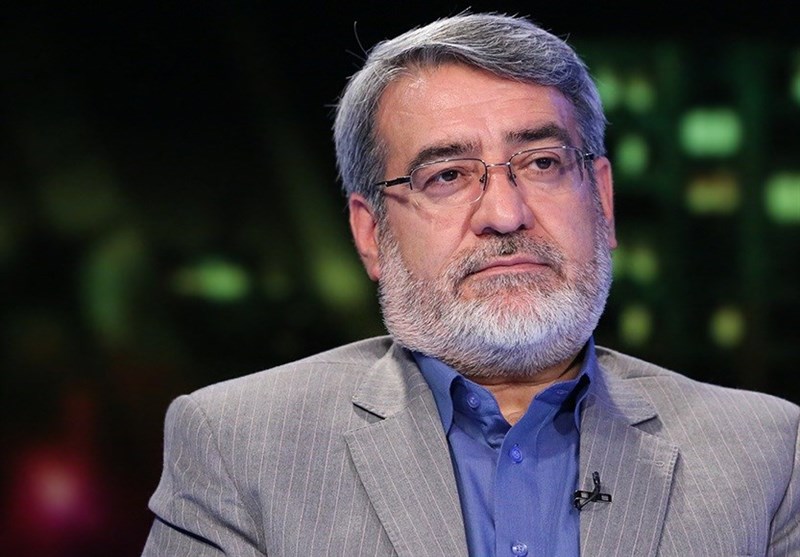
MP Nader Ghazipour strongly criticized the performance of interior ministry with regard to events of Pasdaran Avenue, northern Tehran. Pointing out to deaths of police and Basij forces in these events, he said, “it is unfortunate that some people do not express their views about such important issues.” Ghazipour urged that if the interior minister cannot do his job, he must either resign or apologize, adding what has happened is due to the incompetence of interior minister and imprudence of Iranian president.
Young Journalists Club
♦ Narges Mohammadi: Judiciary system dominated by security-military entities
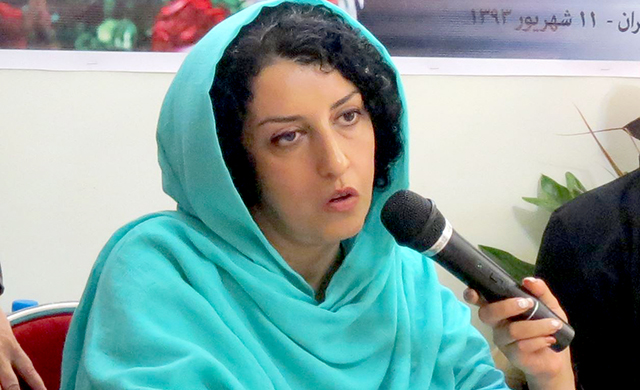
Narges Mohammadi, human rights activist and political prisoner, wrote an open letter to Iran’s Chief Justice Sadegh Larijani, calling his claim as to the independence of judiciary branch “contrary to reality, deceitful, and ridiculing the justice.” In this letter published on February 21, Narges Mohammadi considered the judiciary branch at hands of security-military entities, writing, “the influence of interrogators in the most basic rights of the prisoners, such as their vacations, shows lack of independence of the judiciary branch.” According to Narges Mohammadi, “as a result of corruption and lack of financial and ethical health of some judges and judiciary officials, this branch has become a tool in the hands of regime’s entities, instead of securing justice for all citizens.”
Narges Mohammadi was sentenced to 16 years of imprisonment in 2016, on the charge of “propaganda against the regime, assembly, and collusion with intention of actions against national security”.
Iran International
♦ Jahangiri: $30 billion contracts signed with foreign parties
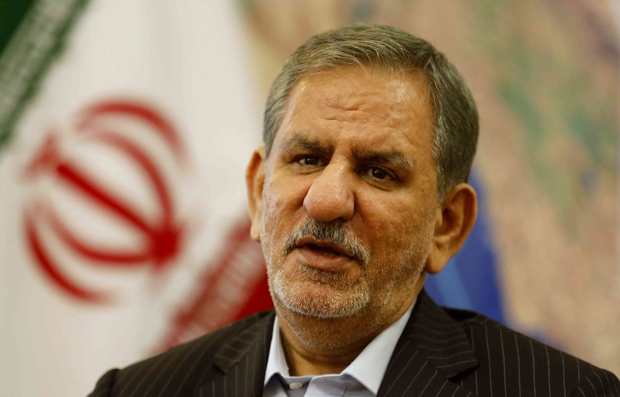
Iranian First Vice President Eshaq Jahangiri said during past year, Iran has signed more than $30 billion contracts with foreign parties and has a credit line, adding that when Europeans saw that their banks resist working with Iran, they found another way. According to Jahangiri, Italy was the first country to sign a $5 billion contract, Austria signed 5.1 billion euros of contracts, South Korea 8 billion euros, China more than $10 billion, and negotiations are underway for more than $30 billion.
With regards to change in the constitution, Jahangiri said many years after the ratification of the constitution, “we are facing problems with regard to implementation and the relation between 3 branches”, adding that some of the parliament’s legislation are openly interference in the executive branch’s duties.
Iran
♦ Iran-China joint meeting to develop economic and trade relationship
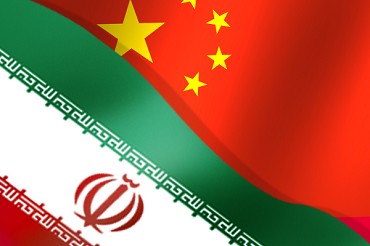
The meeting was held, headed by Iran’s First Vice President Eshaq Jahangiri, for studying policies to develop economic and trade relations with China. In this meeting, Jahangiri called China as a significant trade partner for Iran, saying that promoting a level of trade and economic relations with China is one of the main direction of the country. Iran’s First Vice President demanded that Iran’s foreign ministry formulate a long-run, implementable, operative plan for developing the relations on the two countries and create the grounds for increasing economic relations.
Mehr news
♦ 4.6 earthquake hit near West Azerbaijan
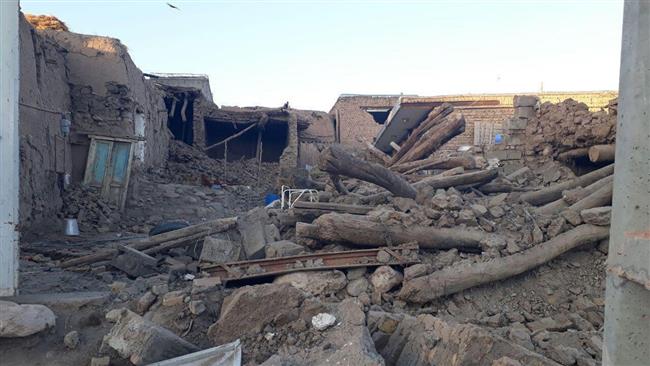
A 4.6 earthquake hit the area near West Azerbaijan Province on Monday night. According to Geophysics Center of Tehran University, the quake took place in Iraq and close to Mirabad (West Azerbaijan). Closest cities to the quake are Mirabad, Sardasht, Piranshahr.
ISNA
♦ Latest on espionage case in cover of environmental activities in Iran
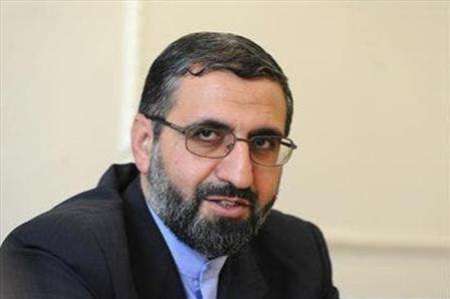
Gholamhossein Esmaili, head of Justice Department in Tehran Province, explained the latest condition of “espionage case in the cover of environmental activities”, urging that currently this case in still being investigated. He added other people’s names have been mentioned in this case, and there will be more arrests if the interrogator of the case decides to.
Iran’s judiciary system claims that the suspects, in this case, led by CIA and Mossad officers, were after “environmental issues, infiltrating Iranian scientific society, and collecting data from sensitive, vital locations including missile bases”. Tehran Prosecutor Abbas Jafari Dolatabadi has claimed that “about 10 years ago, these people, with guidance from two U.S. intelligence officers, founded an institute within the framework of environmental activities and installed a number of cameras to apparently monitor environmental issues, but to actually monitor the country’s missile activities.”
A group of Iranian environmental activists has been recently arrested on the charge of “espionage”. Among the detainees was Kavoos Seyyed Emami, who, according to Iranian judiciary officials, took his own life in Evin Prison. Many consider Seyyed Emami’s death as “suspicious” and have demanded further investigations in this regard.
Mehr news
♦ Ghassemi: Sweden ambassador summoned to foreign ministry
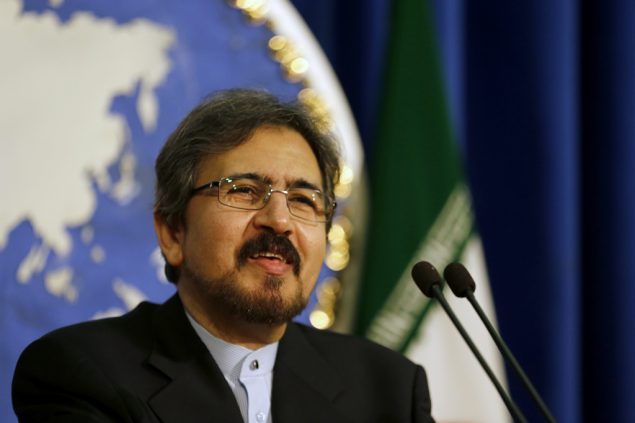
Spokesperson of Iranian foreign ministry announced summoning Swedish ambassador to this ministry. Bahram Ghassemi said following unorthodox measure of the Swedish government in granting citizenship to Ahmad Reza Jalali, Swedish ambassador was summoned to the foreign ministry. Ghassemi said in meeting with Swedish ambassador, the strong objection of the government of Iran in this regard was announced.
Ahmad Reza Jalali, the university professor, is sentenced to death on the charge of “espionage” in Iran. After granting Swedish citizenship to Jalali, Swedish foreign minister announced that as he is a citizen of a European country, he shouldn’t be executed.
Young Journalists Club
♦ Students Basij ready to confront “street miscreants”
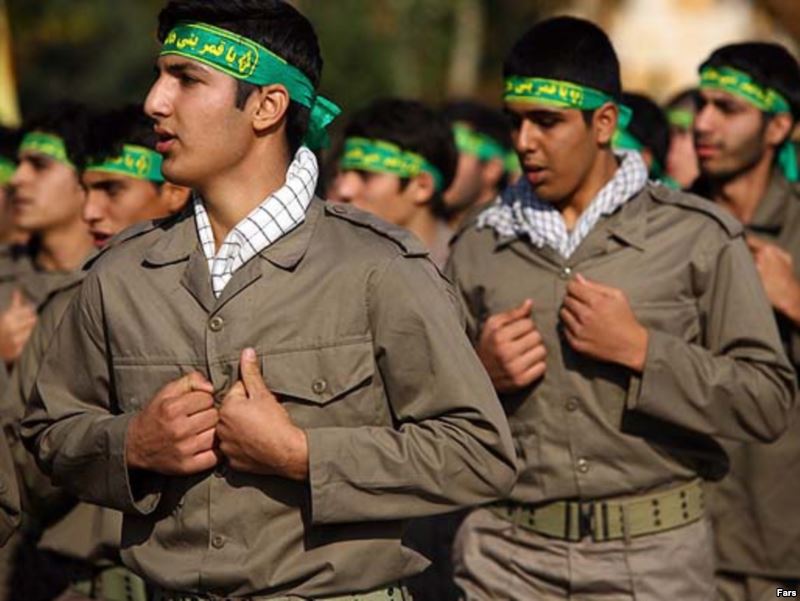
Following the clashes between Gonabadi dervishes and police forces and death of 3 police officers, coordination council of students Basij in Azad universities of Tehran Province sent a message to Iranian chief of police, saying that “if for any reasons, the hands of that force is tied in countering these thugs, Basij forces are ready to deal with them”.
In clashes between Gonabadi dervishes and law enforcement forces, 3 policemen and 2 Basijis have been reported killed. 300 hundred dervishes have been arrested so far.
Fars news agency
♦ IRGC drones in search of crashed airplane
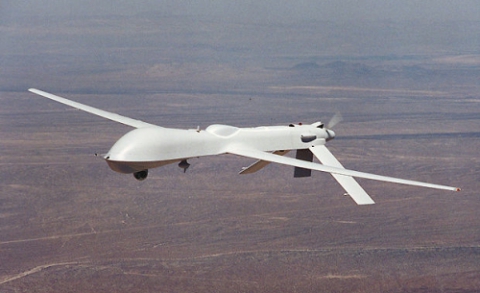
Following the airplane crash in southern Iran that killed 66 people, IRGC spokesperson said IRGC drones are active in the area of the crash, adding that due to adverse weather conditions, “it is very difficult to find the exact location where the airplane has crashed”. Brigadier-General Ramazan Sharif added search-and-rescue operation still continues, but “no reliable news as to whereabouts of the location of airplane crash has been received so far”.
Fars news agency
♦ Deaths of environmental activists in plane crash
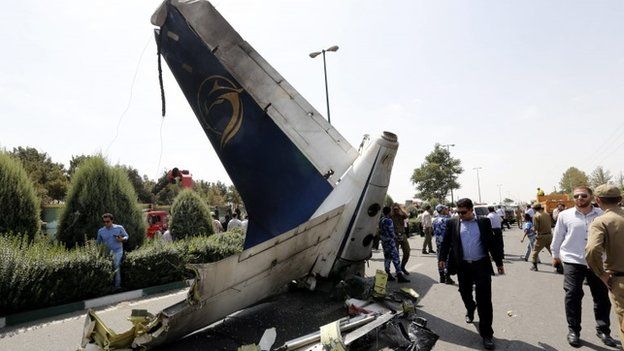
Head of Environment Fraction in Parliament said a group of environment and natural resources experts, who in recent days had come to the Parliament to defend activists in this field and their activities, died in the plane crash in central Iran.
Asseman Airline passenger plane with 66 people on board crashed during a flight from Tehran to the city of Yasuj. All 66 people were reportedly killed in the crash.
Recently, some Iranian environmental activists have been arrested on the charge of “espionage”, and one of these activists, Kavoos Seyyed Emami, is said to have taken his own life while in custody – a death that is considered as “suspicious” by many.
ISNA
♦ Molavi Abdulhamid warns against dividing Sistan and Baluchistan Province
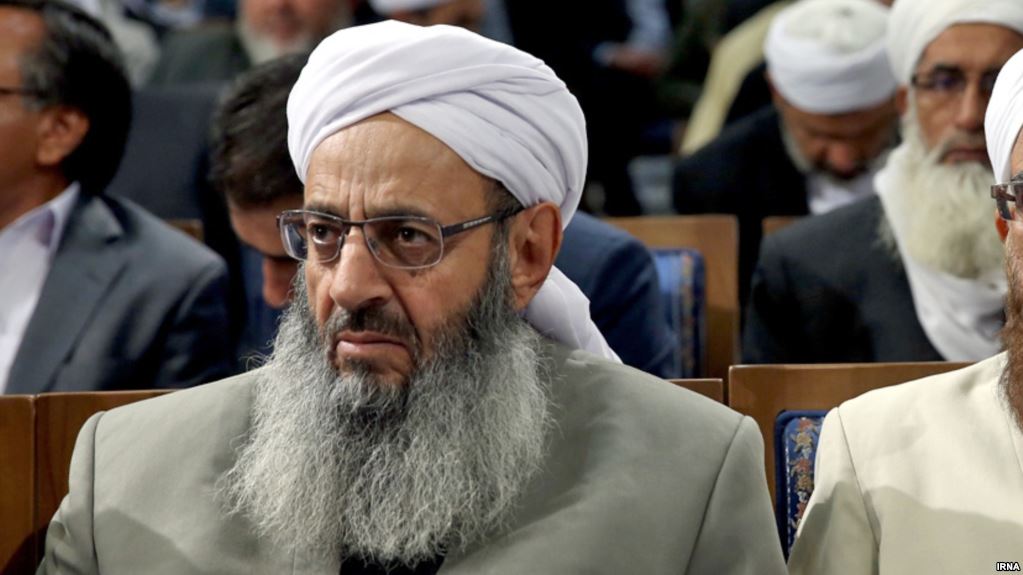
In a part of his sermon in Friday Mass Prayer for Zahedan’s Sunnis, Molavi Abdulhamid warned against adverse consequences of a possible plan for dividing Sistan and Baluchistan, asking those who are for this division to try to erase discriminations and create jobs.
Molavi Abdulhamid, Friday Mass Prayer leader, said two lawmakers from this province insist on dividing Sistan and Baluchistan Province and raise the issue in the Parliament, while the interior minister considered it not to the advantage of the province, and the government is not willing to do it. According to Abdulhamid, the biggest issues in this province are discrimination, unemployment, and not using the potentials.
Tabnak
♦ Ahmad Montazeri: Ahmad Khomeini was after becoming leader
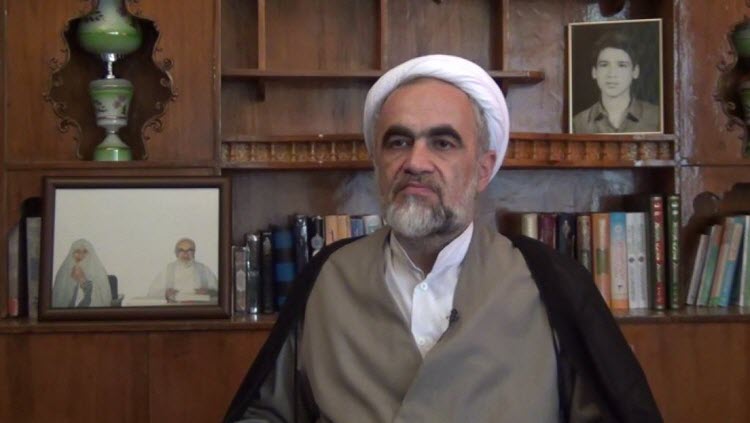
Ahmad Montazeri, son of late Montazeri, said in an interview with Radio Farda that “Ahmad Khomeini [son of Khamenei] gave certain information to Khomeini to eliminate Montazeri and become the future leader. But the sudden death of Khomeini disrupted his plan.”
Late Montazeri had been appointed as the deputy leader but was later removed from his position by Khomeini.
Khabar online
♦ Omid Fraction to follow up death of Seyyed Emami
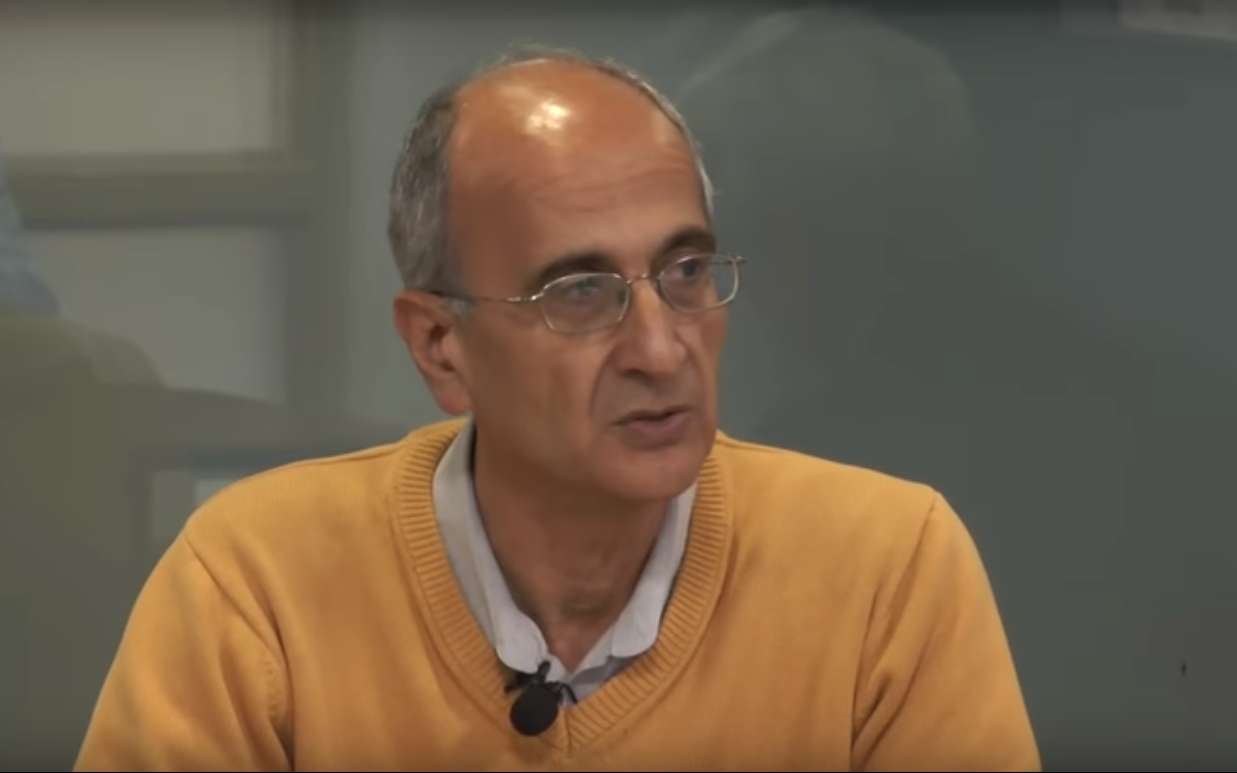
MP Bahram Parsaee, member of Omid Fraction in the Parliament, said this fraction has formed a committee to deal with the issue of death of Seyyed Emami, environmental activist and university professor, and arrests of other environmental activists. He said this committee is going to meet with families of those arrested and hold sessions with officials in this regard.
Recently some political activists have been arrested on a charge of “espionage”, and Kavoos Seyyed Emami was reported to have committed suicide while in custody; many consider his death as suspicious, calling for investigations in this regard.
In this regard, Tehran Prosecutor Abbas Jafari Dolatabadi had pointed out to two recent cases of suicide in Evin Prison, emphasizing the necessity of supervising the prisons and detention centers.
Shahrvand
♦ Lawmaker: Unknown future of second biggest lake in Iran
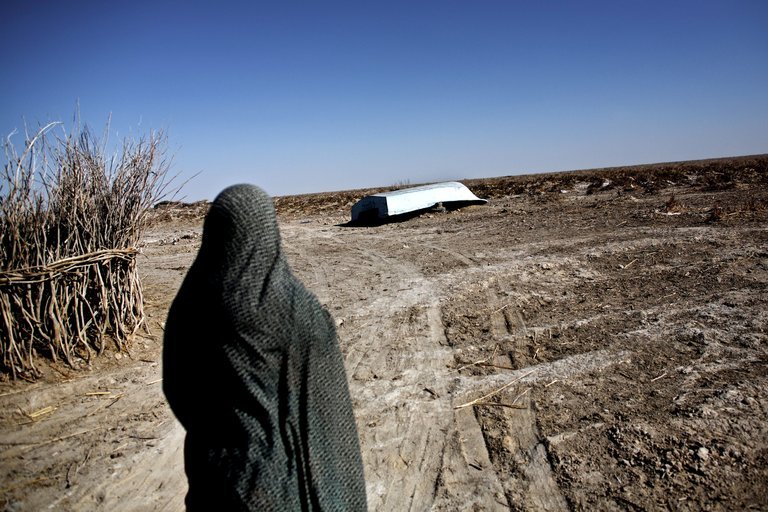
MP Asghar Massoudi warned Iranian President Hassan Rouhani and Iranian Energy Minister about Iran’s second biggest lake. He said: “Bakhtegan, Iran’s second biggest lake, is being destroyed due to lack of precipitation, mismanagement of water, watering of upstream dams, and not paying right of water of environment”. He added dust and draught are determined to destroy this land, there is no water, and people who know nothing but husbandry and farming have lost their jobs.
Mostaghel
♦ Rahim Safavi: Syria, Iraq to become place for U.S.-Russia geo-strategic competitions
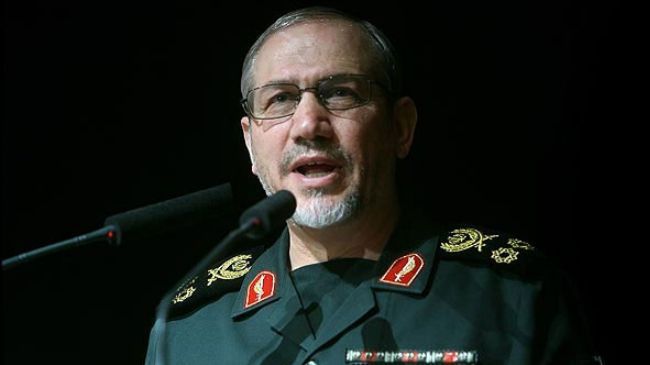
Major-General Rahim Safavi, the advisor to commander-in-chief (Ali Khamenei), said Syria and Iraq have been – and will be – places for geostrategic competitions between the U.S. and Russia. He added that West Asia is in geopolitical transition, and this region will be the place for competition among great powers including the U.S., Russia, and EU, and in near future, China and India will be present in this region to compete with the U.S. According to Rahim Safavi, the U.S., if possible, intends to divide Syria and Iraq, and to undermine Iran’s influence in these countries.
ISNA
♦ UN calls for immediate stop of executing juveniles in Iran
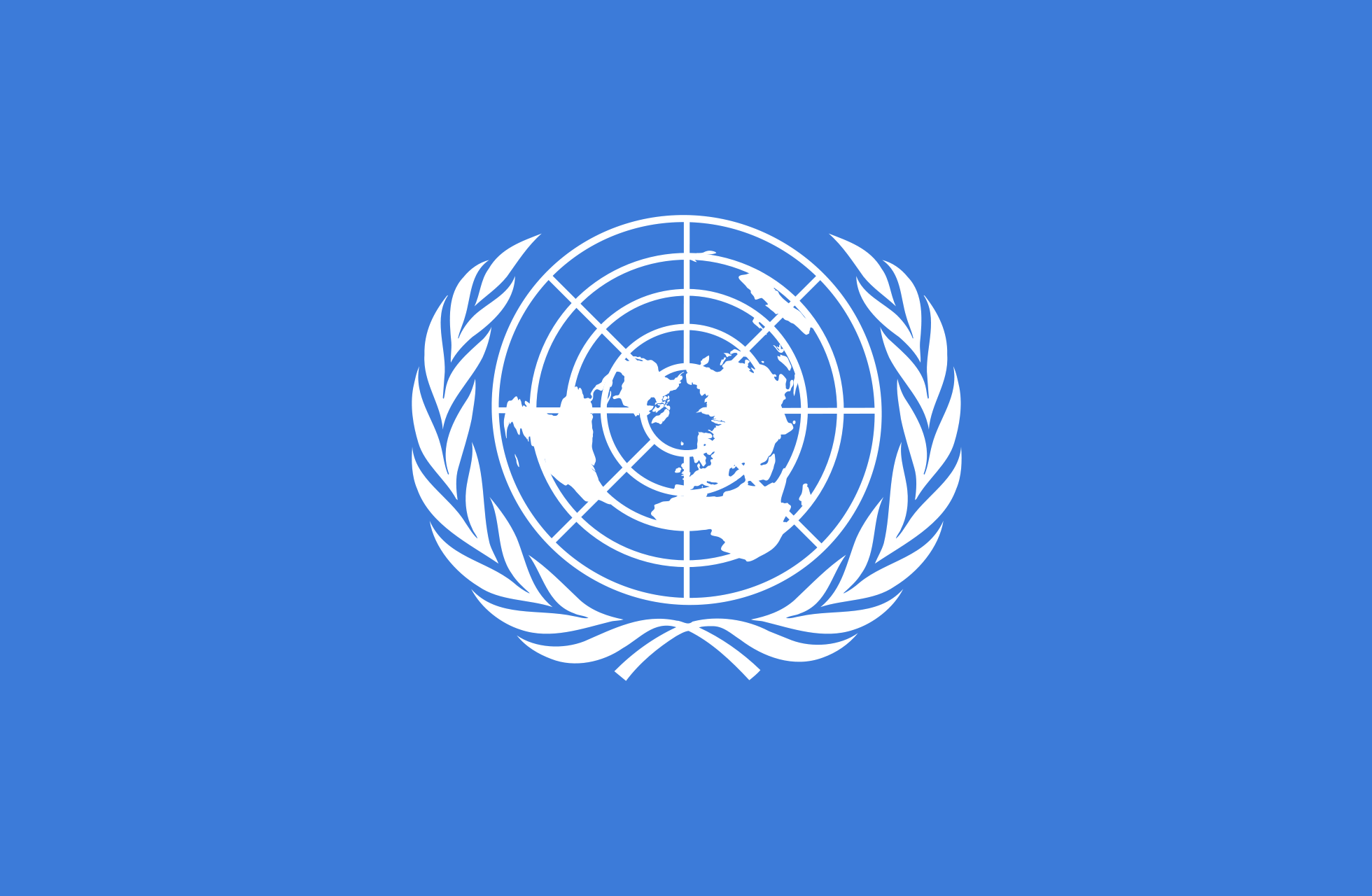
United Nations says the number of execution of juvenile delinquents in Iran has considerably increased, calling for its immediate stop. According to UN Human Rights Office, in the first two months of 2018, 3 juveniles have been executed, while this number was 5 for all year of 2017.
Zeid Raad al-Hussein, United Nations High Commissioner for Human Rights, said in this regard that no country in the world has this number of juvenile executions. He has issued a statement, saying: “Iran must observe all international laws immediately and stop the execution of juveniles who had committed under the age of 18.”
According to this report, currently, more than 80 people who had committed crimes under the age of 18 are in Iranian prisons with a death sentence.
Iran International
♦ Health Minister: 24% of Iranians suffer from mental disorders
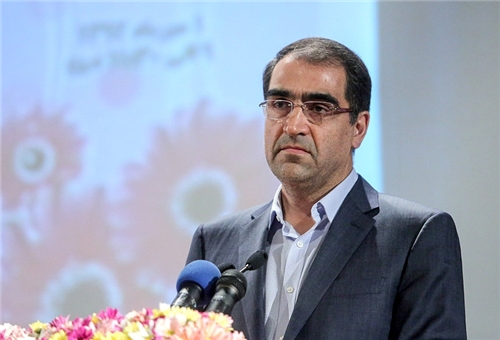
Health Minister Hassan Ghazizadeh Hashemi said one of five Iranians experiences mental disorders annually, and according to existing statistics, 24% of the country’s population suffers from mental disorders. He said those with access to platforms, for personal or partisan reasons, started slandering others and promoted despair in the society, thus creating such disorders.
Arman Emrouz
♦ Tehran welcomes bolstering relations with New Delhi
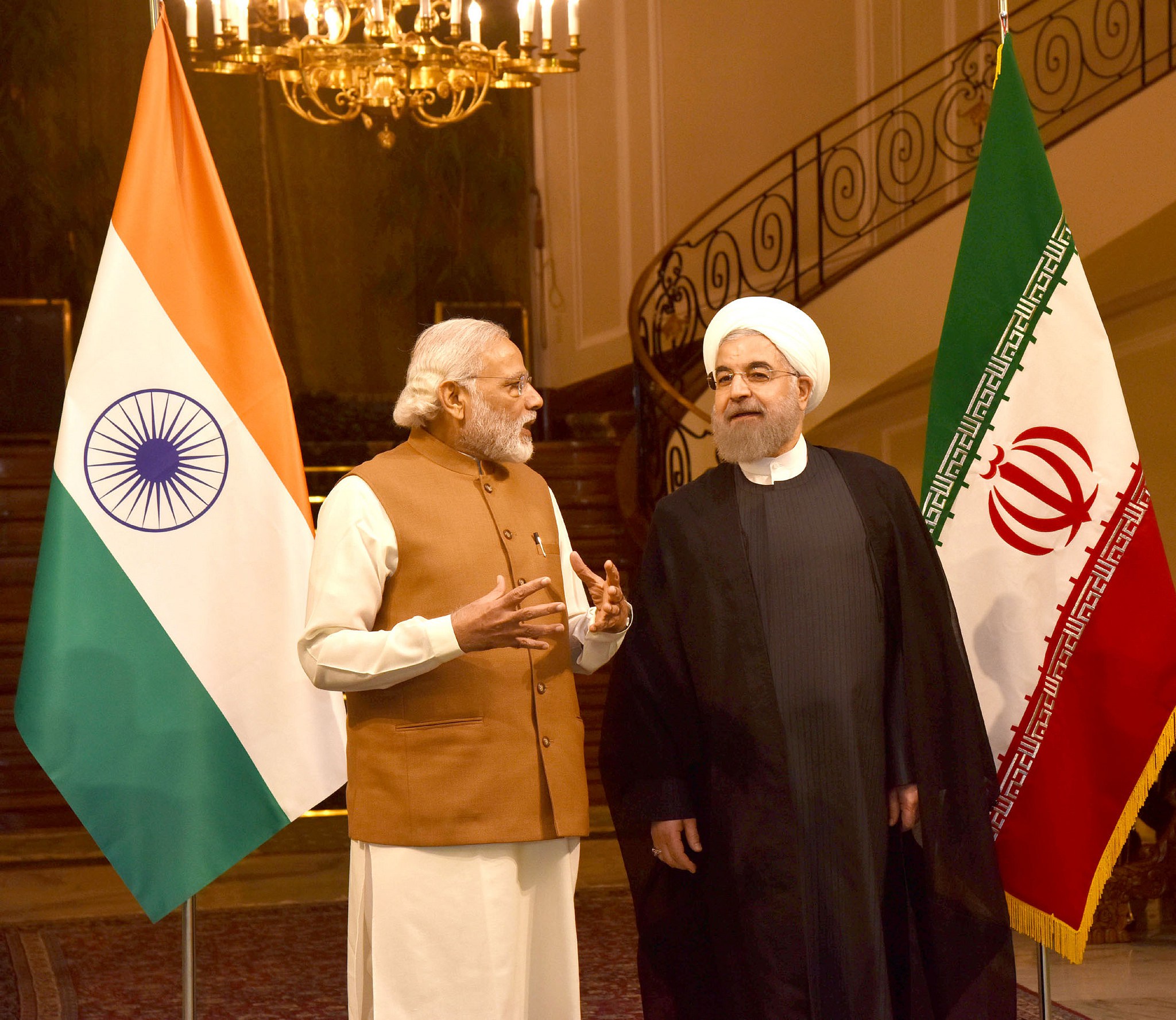
Iranian President Hassan Rouhani took a 3-day trip to India for deepening relationship between the two countries. In bilateral meetings between the Iranian president and India’s prime minister Narendra Damodardas Modi, both countries emphasized on strengthening and expanding the relationship between Tehran and New Delhi and considered using all cooperative capacities to the advantage of both countries, as well as regional countries.
Rouhani expressed satisfaction with the forward moving relationship between Tehran and New Delhi, saying that the relationship between Iran and India is not to the disadvantage of any countries, and there are extensive capacities for expanding and deepening the relationship between the two countries.
The Iranian president also said Iran can provide India’s required energy within long-term strategic contracts, adding that such long-term contracts in fields of energy and transportation will make both countries strategic partners.
Arman Emrouz
♦ Protests in Munich against Zarif’s presence in Germany
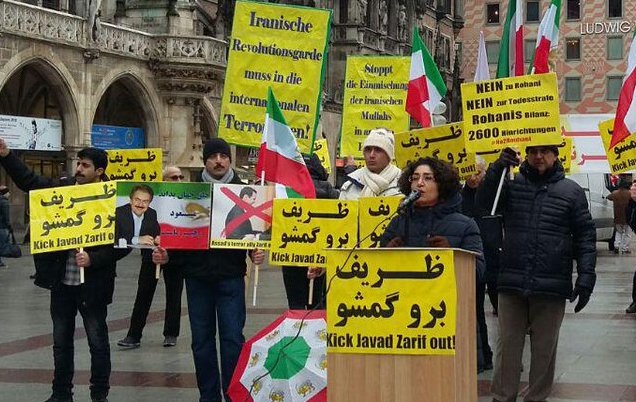
Many Iranians took to Munich streets in protest against Iranian FM Mohammad Javad Zarif’s presence in Germany for taking part in Munich Security Conference 2018. Demonstrators condemned the presence of a representative of “Iran’s religious-fascist regime” in this country, calling for his expulsion. They chanted slogans like “Zarif, get lost!” and “Death to Velayat-e Faqih!”
The Munich Security Conference is one of the major global forums for the discussion of security policy, in which senior decision makers from around the world engage in a debate on current and future security challenges.
YouTube
